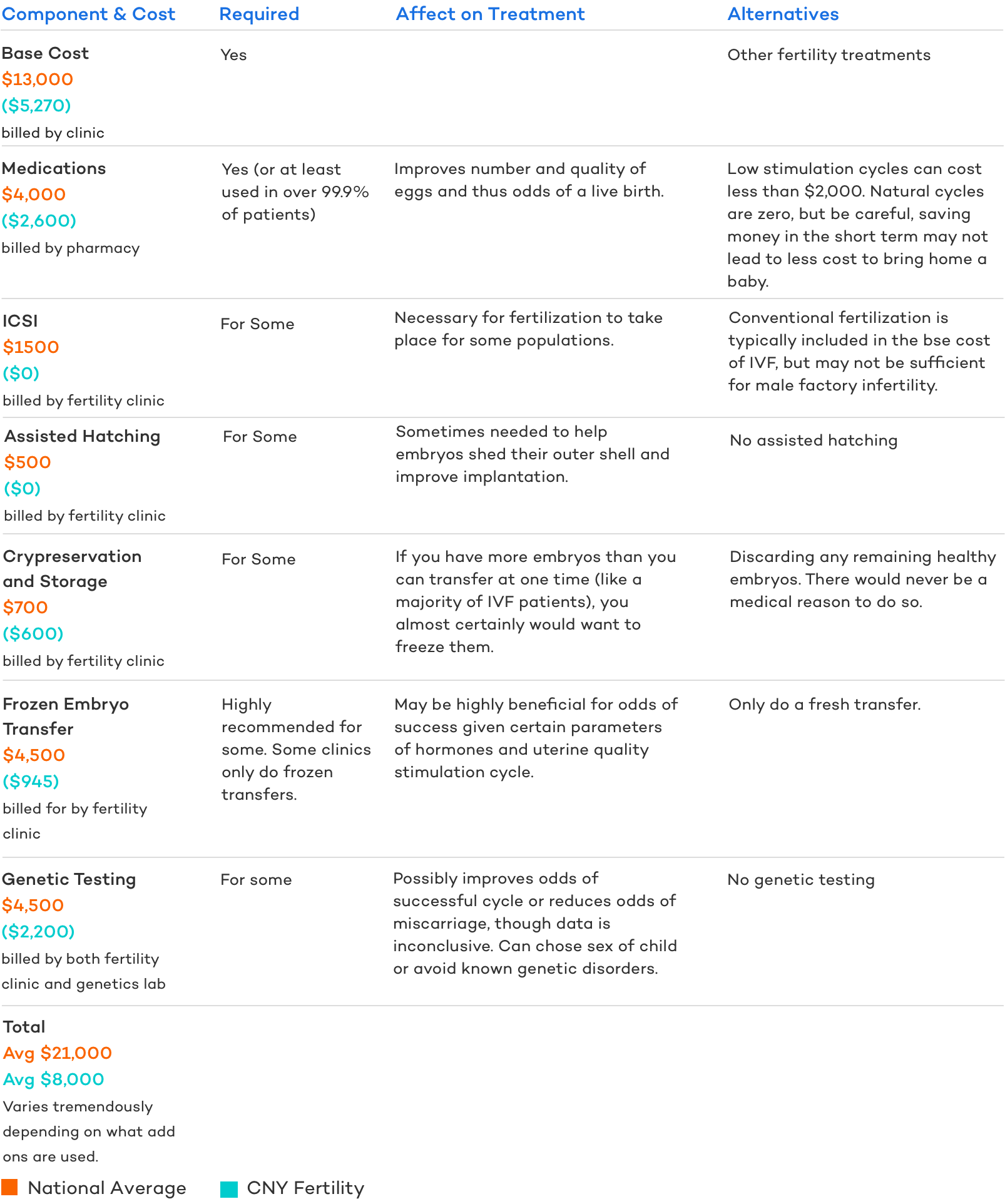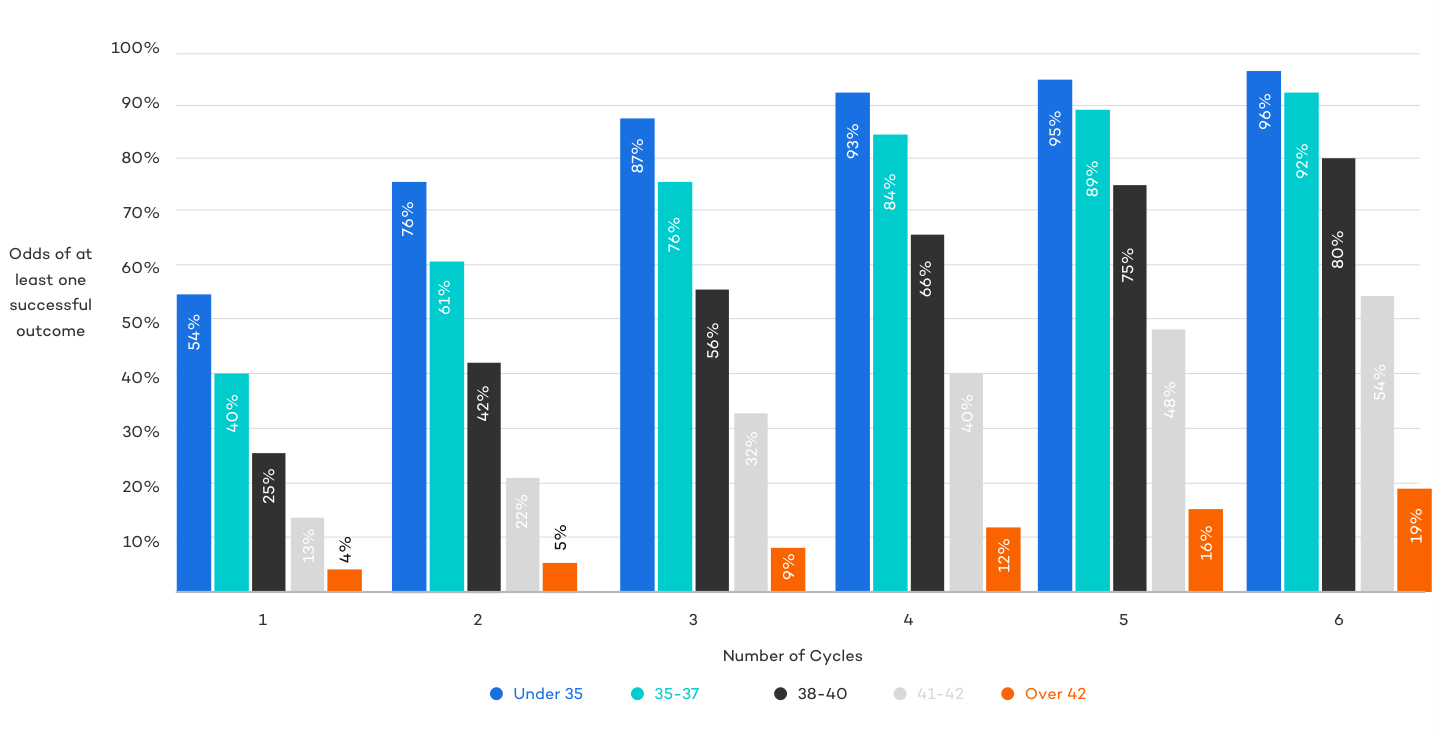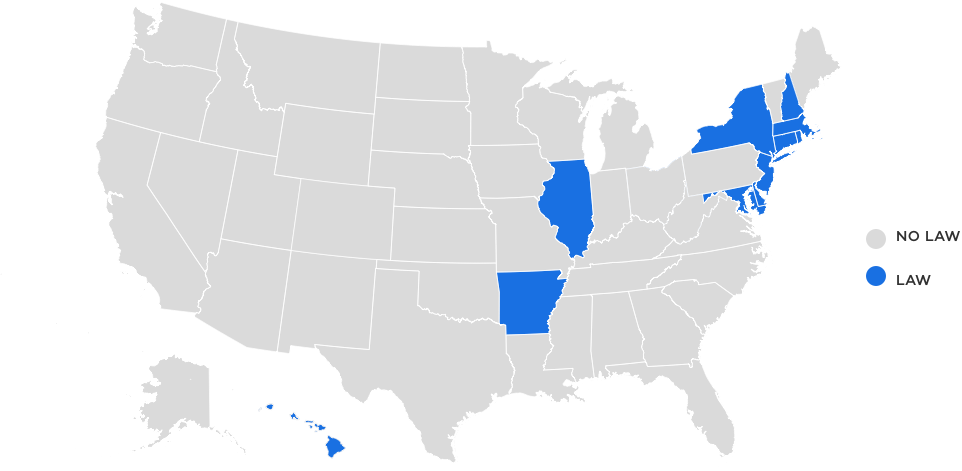IVF Cost: Analyzing the True Cost of In Vitro Fertilization

Understanding the true cost of In Vitro Fertilization (IVF) can be a mind-boggling undertaking. Various factors such as the fees from multiple parties, inconsistent insurance coverage, need for multiple cycles, add on services, and different financing options, can lead to confusion.
Moreover, the costs of IVF can vary greatly from state to state, clinic to clinic, and patient to patient, resulting in a wide range of quoted prices.
This comprehensive guide aims to break down these costs and provide essential information about the price of IVF. Get ready for an in-depth look at the cost of In Vitro Fertilization and what you can do to find the most affordable options available.
What Does IVF Cost? An Overview
The cost of a complete In Vitro Fertilization cycle can range from $5,000 to over $30,000. This wide range depends on various factors, including the provider and specific services required, as well as the need for multiple treatments.
The total cost is influenced by charges from different parties, such as fertility clinics, pharmacies, and genetic labs. Furthermore, IVF success often requires add-on treatments that aren’t included in standard IVF pricing.
When discussing the average cost of In Vitro Fertilization treatment in the USA, the three most common prices to consider are:
- The Cost of a Basic IVF Package: Prices range widely from as little as $5,250 here at CNY Fertility to around $20,000. The national average is around $12,000. This cost includes everything you “need” to do an IVF cycle. However it doesn’t include many important components of an IVF procedure, such as additional medications and services that most patients will require.
- The Total Cost of a Single IVF Cycle: Here at CNY, the total cost of an IVF cycle, including additional medications and services, is usually around $8,000. At many clinics, this can balloon to over $30,000. Meanwhile, the national average is around $20,000. This price includes the costs of “add-on” services such as ICSI, and additional medications that are typically encountered in an IVF cycle. The exact cost at each clinic will depend on the medication protocols and add-on services used.
The Total Cost to Bring Home a Baby with IVF: The cost to bring home a baby could be as low as a one-cycle total if that cycle succeeds. However, it’s safer to plan for an average that accounts for two IVF retrievals and a few Frozen Embryo Transfers (FET). This guidance is based on the fact that, on average, a couple undergoing IVF in the US undergoes two IVF cycles. At CNY, the price range for these combined services is between $16,000 and $20,000. The national average is in the range of $40,000-$50,000. While it is not uncommon for couples to have spent over $100,000 on treatment.
In Vitro Fertilization Cost Comparison: CNY Fertility vs. National Average

With a mission to provide the most accessible fertility care, CNY Fertility has long been one of the most affordable fertility clinics in the USA, costing 1/3 to 1/2 the national average for most treatments, including IVF.
Automatically Included
-
{{ tick.item }}
Sample Payment Calculator: Self Pay Pricing
-
{{getTreatmentName()}} {{ treatment_price_discount|toCurrency }}
National Average {{ this.treatment_price_others|toCurrency}} -
{{ treatment.data.price.monitor.remote.label }} Remote Cycle Management {{ total_monitor.cny | toCurrency }}{{ treatment.data.price.monitor.in_house.label }} In House Monitoring {{ total_monitor.cny | toCurrency }}{{ treatment.data.price.monitor.remote.note_calc | stripHTML }} {{ treatment.data.price.monitor.in_house.note_calc | stripHTML }} Third-party fixed fee (SAMA) Third Party {{ total_monitor.others | toCurrency }}{{ treatment.data.price.reciprocal_ivf.note_calc || "Reciprocal IVF requires both partners to be monitored" }} {{ treatment.data.price.frozen_transfer.note_calc_monitor || "" }}
-
-
{{ treatment.data.price.frozen_transfer.label }} Frozen Transfer {{treatment.data.price.frozen_transfer.cny|toCurrency}}
-
{{ treatment.data.price.cryo_preserve.label }} Cryopreservation + 1yr Storage {{treatment.data.price.cryo_preserve.cny|toCurrency}}{{treatment.data.price.cryo_preserve.note_calc | stripHTML}} Third Party {{treatment.data.price.cryo_preserve.others|toCurrency}}
-
{{ treatment.data.price.genetic_testing.label }} Genetic Testing {{treatment.data.price.genetic_testing.cny|toCurrency}}{{treatment.data.price.genetic_testing.note_calc | stripHTML}} Third Party {{treatment.data.price.genetic_testing.third_party|toCurrency}}
-
{{ treatment.data.price.medication.label }} Medication Estimate {{total_medication.cny|toCurrency}}{{total_medication.note_calc | stripHTML}} Third Party {{total_medication.third_party|toCurrency}}
-
{{ treatment.data.price.medication.label }} Medication Estimate {{total_medication.cny|toCurrency}}{{total_medication.note_calc | stripHTML}} Third Party {{total_medication.third_party|toCurrency}}
-
{{ treatment.data.price.zymot.label }} ZyMōt Sperm Processing ${{treatment.data.price.zymot.cny}}{{ treatment.data.price.zymot.note_calc | stripHTML}} Third Party ${{treatment.data.price.zymot.third_party}}
-
{{ treatment.data.price.pregmune.label }} Pregmune Reproductive Immunology Testing {{treatment.data.price.pregmune.cny|toCurrency}}{{ treatment.data.price.pregmune.note_calc | stripHTML}} Third Party {{treatment.data.price.pregmune.third_party|toCurrency}}
-
{{ treatment.data.price.donor_eggs.label }} Donor eggs {{total_donor_eggs.cny|toCurrency}}{{treatment.data.price.donor_eggs.note_calc | stripHTML}} Third Party {{total_donor_eggs.others|toCurrency}}
-
{{ treatment.data.price.donor_sperm.label }} Donor sperm {{treatment.data.price.donor_sperm.cny|toCurrency}}{{treatment.data.price.donor_sperm.note_calc | stripHTML}} Third Party {{treatment.data.price.donor_sperm.others|toCurrency}}
-
{{ treatment.data.price.donor_eggs.label }} Donor Package {{total_donor_package.cny|toCurrency}}{{treatment.data.price.donor_package.note_calc | stripHTML}} Third Party {{total_donor_package.others|toCurrency}}
-
{{ treatment.data.price.gestational_surrogacy.label }} Gestational Surrogacy {{treatment.data.price.gestational_surrogacy.cny|toCurrency}}{{treatment.data.price.gestational_surrogacy.note_calc | stripHTML}} Third Party {{treatment.data.price.gestational_surrogacy.others|toCurrency}}
-
{{treatment.data.price.split_cycle.label ? treatment.data.price.split_cycle.label : "Split Cycle Discount" }} {{discount_split_cycle|toCurrency}}
-
5% Military & Veteran Discount {{discount|toCurrency}}
-
Installments Fee {{finance.fee|toCurrency}}
-
Total to CNY {{total.total | toCurrency}}
Estimated 3rd Party Costs {{total.third_party| toCurrency}}
Grand Total {{(total.total + total.third_party)| toCurrency}}
National Average: {{total.national|toCurrency}} -
Down Payment to CNY{{finance.payment_down_amount|toCurrency(2)}}
-
Monthly Payment to CNY{{finance.monthly_payment|toCurrency(2)}}
{{ treatments[treatment_selected]['data']['footnote'] }}
The above calculation is for simulation purposes only. It is reflective of self-pay pricing, includes highly variable estimates paid to CNY and third parties, and national averages obtained through internal research, FertilityIQ, ASRM, and Resolve. Billing through insurance will likely result in substantially different fees. CNY Fertility does not warrant or guarantee any price for services conducted or rendered by a third party and recommends everyone obtain written estimates from any medical facility involved in your treatment as well as verification of coverage from your insurance company prior to beginning treatment.
1 USD = {{currency.rates[currentCurrency]}} {{currentCurrency}}
Last Update {{currency.last_update}}
The Average Cost of IVF Billed by the Fertility Clinic: $12,000
The Average Cost of IVF Billed by the Fertility Clinic: $12,000
The average cost of In Vitro Fertilization is most often quoted around $12,000 because that’s what is stated by the Society of Reproductive Medicine and what is billed directly by a fertility clinic for a basic, no-frills IVF cycle. . It is important to note that this $12,000 average doesn’t include any critical “add-on” services like ICSI (also billed by the fertility clinic) or IVF medications (billed by pharmacies).
Although this average cost covers the minimum required for an IVF cycle (natural IVF), to say that In Vitro Fertilization costs an average of $12,000 is misleading since over 99% of people require additional services beyond the barebones IVF protocol.
Breakdown of What is Included in the Base IVF Cost
This base IVF price includes the minimum of what is needed to do an IVF Cycle:
- Monitoring Appointments: Monitoring appointments track ovarian/uterine lining development and time the egg retrieval.
- Egg Retrieval + Anesthesia: The egg retrieval is the procedure to remove the eggs from the ovaries.
- Conventional Fertilization: Conventional IVF fertilization involves prepping the sperm and putting them in a petri dish to fertilize the eggs.
- A Fresh Embryo Transfer: A fresh embryo transfer puts the (never before frozen) IVF embryos back into the uterus.
Remember that while $12,000 is the average cost of the minimum services necessary to do In Vitro Fertilization, the price quoted by a fertility clinic for their base IVF package may include more or fewer services and, therefore, cost a lot more or a lot less.
For example, here at CNY, our often quoted price of $4,500 does not include the necessary monitoring appointments, but it does include other services that often incur an extra at many other clinics.
Our $4,500 IVF includes the following extra services that are not included in the $12,000 national average:
- ICSI Fertilization: ICSI is a micro procedure where an individual sperm is isolated and injected directly into the egg. It is necessary for male factor infertility.
- Assisted Hatching (AH): AH helps embryos shed their outer shell, which is necessary for implantation in the uterus.
- Cryopreservation: Freezing of remaining embryos.
Monitoring with CNY costs $995 and is not included in the base price of our IVF because it is often covered by insurance. Additionally, over half of our clients travel to us from out of state/country and choose to have their monitoring done locally. This allows our patients to be treated at our facility for a short 2-7 days.
Travel clients pay $4,500 for IVF and a small $150 remote cycle management fee. For locals, or those from out of state who choose to travel to us for their entire treatment, our base IVF cost, including monitoring, is $4900.
It is also important to know that many clinics itemize certain aspects of the IVF process. For example, a clinic could say:
- $8,000 for IVF
- $2,000 for the anesthesia
- $2,000 for the embryo transfer
Because of the inconsistencies in the way IVF packages are “built,” and the amount charged by each clinic, it is important that you understand exactly what is included in your quoted price and what other potential add-on costs can be.
While one would assume higher prices include more services than those that quote lower prices, this is not true in the world of IVF.
The Total Cost of One In Vitro Fertilization Treatment
The total cost of the average IVF cycle in the USA is around $20,000. But how do we get from the $12,000 IVF base price to the commonly cited cost of $20,000?
Let’s break down some of the more significant additional costs (billed by both the fertility clinic and third parties). .
The Cost of IVF Medications: $4,000 – Billed by a Fertility Pharmacy
The average cost of IVF Medications is around $4,000. This is the cost of injectable medications used for ovarian stimulation (with the goal of developing numerous high-quality eggs) and transfer medications.
If pregnancy is achieved, medication expenses can continue to rise as they are often used for months, and even for the duration of the gestation.
Even without the medications used to support an established IVF pregnancy, the cost of medications is one of the largest line items in an IVF cycle, and has the potential to cost more than the services billed by the fertility clinic.
While $4,000 is a reliable average cost, there is a wide range (roughly $2,000-7,000) of possible medication prices. These costs are based on a few factors, including:
- Protocol: Medication protocols range significantly. You could pay significantly less for a low-dose or mini IVF protocol (which uses fewer medications), or significantly more for a high-dose cycle or protocols that include immune medications in cases where patients have had failed IVF cycles or recurrent pregnancy loss.
- Clinic: Larger clinics have more purchasing/negotiating power on behalf of their patients. As a way to secure business from a large clinic, specialty fertility pharmacies will offer their clients better prices.
- Pharmacy: Pharmacies vary in price. While the variation may not be dramatic, the potential savings can justify shopping around.
- Type/Brand: When available, generics can cost less than brand name medications..
Unless you’re pursuing a mini IVF protocol, you can expect to pay at least $3,000 for your IVF medications.
ICSI Cost: $1500 – Billed by the Fertility Clinic
The average cost of intracytoplasmic sperm injection (ICSI) is around $1,500. However, this too is highly variable. Some clinics include ICSI in their base pricing, while others charge upwards of $3,000.
ICSI may not be absolutely necessary for everyone, but it will be beneficial for many. It is the most popular fertilization method and generally offers excellent results.
The alternative to ICSI fertilization is conventional fertilization which is (or should) always be included in the base price of treatment.
Assisted Hatching Cost: $500 – Billed by the Fertility Clinic
The average cost of assisted hatching (AH) is around $500. But as with other services, the cost can vary from free (included in base price) to around $1,000 in additional expenses.
Assisted Hatching (AH) is an embryonic procedure in which a special laser is used to assist an embryo in hatching from its shell (zona pellucida).
The zona pellucida initially helps to protect the egg and resulting embryo. But it is essential that the embryo hatch from the zona pellucida for it to implant in the uterine wall and create a pregnancy.
Cryopreservation + First Year Storage: $600 – Billed by the Fertility Clinic
Some clinics may include cryopreservation and storage in their base price, but it typically garners a cost of around $600 with an additional recurring annual storage fee.
Cryopreservation is an important service for many IVF patients. The IVF process often yeilds several mature eggs collected during the egg retrieval process. Each mature egg is usually fertilized and grown in the embryology lab.
After several days of growth in the lab, a patient may have multiple high-quality embryos eligible for embryo transfer back to the uterus. Since most patients undergo single embryo transfers, many patients will have more embryos than can be transferred in a cycle.
The surplus of high-quality embryos that are not initially transferred is in most cases, frozen or cryopreserved, for future use.
Frozen Embryo Transfers: $4,000 – Billed by the Fertility Clinic
The average cost of a Frozen Embryo Transfer (FET) is around $4,000, but ranges from $650 here at CNY to over $5,000.
Frozen embryo transfers (FET) are rarely included in the base price of IVF but are a necessary procedure for a large percentage of patients who, as mentioned above, have multiple embryos, or whose uterine lining is not prepared for implantation in time for a fresh transfer.
The stimulation medications used to produce multiple eggs often make it difficult for the woman’s body to prepare the uterine lining for the embryos in only a few short days after the egg retrieval. This can lower the odds of a successful fresh transfer making it medically advised to do a “Freeze All” cycle followed by an FET.
Ultrasound and Bloodwork monitoring will help you and your reproductive endocrinologist make this decision during the stimulation phase of the IVF cycle.
Preimplantation Genetic Testing: $4,500 – Billed by Both the Fertility Clinic and a Genetics Lab
Preimplantation Genetic Testing (PGT) is the testing of an embryo’s genetic profile prior to being transferred. Though PGT does come with some risk, it is usually done to improve the success rates by determining which embryos have a normal number of chromosomes and/or which do not carry known genetic disorders of the parents. It can also be used to choose the sex of the embryo transferred.
Genetic testing costs range significantly and often involve two bills, one from the fertility clinic for taking the embryo biopsy, and the other from the genetics lab for performing the actual genetic analysis.
Different clinics charge different fees for their embryonic biopsies, and most genetic testing is charged based on the number of embryos being tested along with the type of tests being run.
Costs from the clinic can range from $200-3000 for the biopsy, and $1,000-$3,500 from the genetics lab for the genetic testing.
It takes time to get the results for PGT, which means all of the embryos must be frozen to await results. Therefore, someone doing PGT will also encounter fees associated with an FET.
Total Cost of IVF Breakdown

The Average Cost to Bring Home a Baby with IVF
The last number we are going explore is the largest when considering the average cost of IVF. This is what it costs to actually bring home a baby.
Since for most people the average cost to bring home a baby will be the sum of multiple IVF cycle, this number depends largely on the cost of a single cycle. Some studies report averages of $50-60,000.
The Need for Multiple IVF Cycles
Simply put, IVF doesn’t always work the first time. In fact, even for the best candidates for IVF, the odds of a single IVF cycle being successful tops off around 50-60%.
For women of advanced maternal age–late thirties to forties–success rates are even lower.
Many women will undergo multiple rounds of IVF. How many? According to one study, the “average” couple will need 2.7 IVF (with a median of 2) cycles to achieve a successful outcome. Multiply $20,000 by 2.7 and you land at $54,000. Multiply $20,000 by the median of 2 you get $40,000.
To help visualize why the average couple needs 2/2.7 cycles, take a look at the graph below, showing the odds of at least one cycle being successful over 6 cycles per age group.


As you can quickly see from the above graph, having a child from IVF can in many cases take multiple IVF cycles. Given the average cost of one complete IVF cycle is near $20,000, you should now be able to understand how the average couple spends $40-60,000 on IVF treatment before they have a child.
IVF Cost with Insurance
Out of pocket costs for IVF can be substantially reduced with the help of insurance. But what exactly does IVF cost with insurance?
That’s a bit tricky to answer. While only 25% or so of Americans have insurance coverage for the IVF treatment itself, more have coverage for diagnostic testing, monitoring, or other components of the IVF procedure, which can lower your total out of pocket expenses. Some insurance plans will not cover any fertilty related expenses, while others will cover:
- Diagnostic testing for infertility but no treatment.
- Diagnostic testing for infertility and some less costly/invasive treatments like IUI (aka artificial insemination).
- Diagnostic testing and the full spectrum of fertility treatments, including IVF.
To determine your coverage, read your health insurance plan carefully . It’s often a good idea to give your insurer a call to get specific answers regarding fertility treatment coverage. And keep in mind that even if IVF is covered by your health insurance plan, reimbursement may be impacted by your deductible. For some plans this can mean having to spend over $10,000 out of pocket before your benefits kick in.
That said, there are two main “ways” to get insurance with IVF coverage in the United States.
- Live in a state that mandates insurance companies offer IVF coverage.
- Work for a company that offers fertility benefits as a way of attracting and maintaining talent . . . or to simply do what is right!
IVF Coverage by State

A number of states have laws that mandate some form of fertility coverage. However, of the 17 states that have laws pertaining to infertility coverage, only 9 of those states have laws that mandate IVF coverage in some form.
Many of the laws mandating IVF coverage are written in a way that excludes a large number of people from coverage. For instance, some laws exclude plans offered by employers with less than 100 employees; according to the United States Small Business Administration, this alone leaves out approximately half the workforce.
Here’s a brief overview of the laws in states where IVF coverage is mandated in some form.
Arkansas
Arkansas has a $15,000 lifetime max for fertility coverage. This covers IVF, but has the following stipulations.
- One must have at least a 2-year history of infertility, or the infertility must be caused by a diagnosis of: endometriosis, blocked or surgically removed fallopian tubes (not from an elective tubal ligation), DES exposure, abnormal male factors contributing to the infertility.
- The woman’s eggs must be fertilized by their spouse’s sperm.
- One must have been unable to obtain a successful pregnancy through less costly treatments. This means that the majority of that $15,000 will likely be used before IVF.
Connecticut
The Connecticut law includes both Individual and group health insurance policies and includes coverage for services such as IUI and IVF.
Some restrictions include:
- Under the age of 40
- Lifetime maximum of two IVF cycles
Deleware
Delaware’s law includes up to 6 IVF retrievals with an unlimited number of transfers from those retrievals and also covers donor egg cycles.
Some restrictions include:
- Retrievals must be completed before the age of 45, and transfers before the age of 50.
- Employers who self-insure, or who have fewer than 50 employees, are exempt from state requirements.
Hawaii
Hawaii has laws that mandate coverage of one cycle of IVF. However, this mandate is subject to many rules and stipulations.
- Coverage is only required if the patient or spouse has at least a 5-year history of infertility or if the infertility is associated with one of the following conditions: endometriosis; DES exposure; blocked or surgically removed fallopian tubes; abnormal male factors contributing to the infertility.
- The eggs must be fertilized with the spouse’s sperm.
- Coverage is only given if other treatments failed.
- Self-insured employers are exempt from providing coverage.
Illinois
Each person is covered for 4 egg retrievals. However, if a live birth occurs in one of those cycles, two additional egg retrievals will be covered with a true lifetime maximum of six retrievals.
Exemptions are possible for religious organizations.
Massachusetts
Each person is covered for 4 egg retrievals. However, if a live birth occurs in one of those cycles, two additional egg retrievals will be covered with a true lifetime maximum of six retrievals.
Maryland
The state of Maryland requires individual and group insurance policies that provide pregnancy-related benefits to cover the cost of IVF with the following limitations.
- Coverage may be limited to three IVF attempts per live birth and have a lifetime maximum of $100,000.
- Must attempt to get pregnant with less expensive treatment options first.
- Must have at least a two-year history of infertility or have infertility caused by: endometriosis, blocked or surgically removed fallopian tubes (non-voluntary), abnormal male factors, or fetal exposure to diethylstilbestrol (DES).
- The male spouse’s sperm must be used to fertilize the woman’s eggs unless he is unable to produce or deliver functional sperm (and this inability is not related to voluntary sterilization).
- For same sex couples, there must be six previously failed attempts of artificial insemination over the course of two years or have infertility related to one of the conditions mentioned above.
Religious organizations may be exempt.
New Hampshire
Provides coverage for medically necessary fertility treatments. Coverage does not apply to plans available through the Small Business Health Options Program (SHOP) or to Extended Transition to Affordable Care Act-Compliant Policies.
New Jersey
Coverage includes 4 Egg retrievals per lifetime and requires the patient to be 45 years of age or younger. Employers with less than 50 employees are exempt.
New York
Private health plans from employers with 100 or more full-time employees must provide coverage for up to three cycles of IVF (frozen embryo transfers count as a cycle).
Rhode Island
Coverage is provided for those between 25 and 42 years of age and imposes a $100,000 cap on treatment. The insurer may also charge a 20% co-payment.
Companies that offer IVF Insurance
Besides living in a state that mandates IVF coverage, Starbucks, along with a growing number of companies offer IVF coverage as a way to attract and maintain quality employees.
Some companies like Starbucks and Chobani even offer coverage to hourly employees, and many large tech companies also offer IVF related perks like egg freezing.
Help Affording In Vitro Fertilization Treatment
There are a number of financing options and helpful ways to pay for IVF.
IVF Financing
There are various financing options available at different clinics. While some clinics like CNY offer in-house financing, most clinics partner with third-party lenders.
There are also lenders not associated with specific clinics. These lenders include companies with dedicated IVF and fertility lending programs. While personal loans from credit unions are another possible and accessible source of financing.
Learn more about IVF financing here.
IVF Grants
An IVF grant is a great way to reduce the cost of your fertility treatment, and even to get a free IVF cycle. There are dozens of grants throughout the USA. While some have specific residency requirements or are set aside for those of a particular demographic, many, like the CNY IVF Grant are open to everyone and take place every month.
IVF Guarantee or Refund Programs
Many fertility clinics generally offer some form of a guarantee program where you pay a lump sum for a specific number of IVF cycles, upfront. If you don’t become pregnant, you receive a full or partial refund. But if you become pregnant on one of the earlier cycles, you don’t get any of your money back. This means that you risk paying more than you needed to, but you also have a good chance of recouping the cost or paying less than if you opted for bespoke payments. Because of this, these programs are often called shared risk.
CNY Fertility offers a 75% refund on six cycles for $20,000 with our Fertile Guarantee™.
Mini IVF
Mini (low-stim, minature, etc) IVF is doing a standard IVF process but with less medications. It is often touted as an “affordable IVF.”
Though it is true that mini-IVF may reduce the cost of a single IVF cycle, it’s important to understand that less medications usually mean fewer eggs retreived, which will likely result in fewer embryos. Having fewer embryos reduces the odds of a successful pregnancy from that single IVF egg retrieval, and may necessitate more IVF cycles.
Therefore the cost to bring home a baby via mini IVF may be more than conventional IVF with standard medication dosing.
Remember, a FET cycle using embryos from a previous IVF stimulation and retrieval is far less expensive than undergoing a new IVF cycle.
So while mini-IVF may be a good option for some, it is important to discuss this option with your reproductive endocrinologist to get an understanding of your specific ovarian response and potential success rates.
It is possible to cut the costs of medication dosing even further using what is called natural IVF. In natural IVF, no medications are taken. For most women undergoing natural IVF, it is rare to rare to get more than one egg at retrieval.
INVOcell
INVOcell is an intravaginal culture system that replaces the embryology/IVF laboratory during an IVF procedure. It, therefore can best be seen as a treatment off-shoot of In Vitro Fertilization.
The INVOcell device is a small thumb-sized plastic device in which the eggs and sperm are placed before being inserted into the vagina to allow for fertilization and early embryonic development to take place.
INVOcell is aggressively marketed as a more cost-effective alternative to IVF, but those claims are largely dependent upon a few factors, including:
- comparison to the more expensive IVF clinics, and not to the cost of IVF clinics that offer more affordable models like CNY.
- being paired with a “mini” or reduced medication protocol mentioned above, which can help save money during the course of one IVF cycle.
INVOcell may not be more affordable at every clinic and also has substantially lower success rates (approximately half) than IVF.
Flexible Spending Accounts (FSA) & Health Savings Accounts (HSA)
FSAs and HSAs are pre-tax accounts you can use for health care related expenses. The main difference between the two is that an FSA is employer-owned, less flexible, and can not be rolled over. HSAs are controlled by individuals, and contributions can roll over into another year.
They each have their own maximum contribution limits and restrictions, but they are both great ways to save a significant amount of money by using pre-tax dollars to pay for qualifying medical expenses.
Medical Tourism
With the out-of-pocket expenses for IVF being more than the average American family’s discretionary income , many patients look outside their local area or country to find more affordable fertility care options.
While the cost of IVF in India and other developing countries can be attractive, particularly to patients with roots in those parts of the world, many patients choose to stay within the states and seek savings by shopping around.
CNY is one of these domestic “destination,” clinics people travel to in great numbers from both coasts of the United States, Canada, and countries around the globe. In fact over 50% of CNY clients come from states in which there are no CNY offices.
Medication Discount Programs
There are various medication discount programs that can help pay for some of the IVF medication costs.
- Compassionate Care by Fertility Lifelines offers self-pay clients, those with no insurance or fertility coverage, assistance with paying for their Gonal F, Cetrotide, and Ovidrel medications.
- Compassionate Corps by Fertility Lifelines offers military veterans with service injuries an additional option to help finance their fertility medications.
The Bottom Line
IVF costs range from $4,500 to over $100,000, depending on factors like clinic, state, and individual treatment needs. Clinics will often quote prices that make only a part of an IVF treatment but not provide an outlay for the cost of the multiple cycles required for most clients to bring home a baby.
The average IVF cycle cost including all the necessary components is around $20,000, but it can be done for only $8,000 at CNY Fertility.
Key components to the total cost of IVF include medications, lab fees, and add-on services such as genetic testing and ICSI.
Given IVF often costs more than the average American’s yearly household dispensable income, it’s common that those considering IVF travel for their treatment to more affordable clinics, look for financing options to spread payments over a period of time, and also explore options like grants and refund programs.




